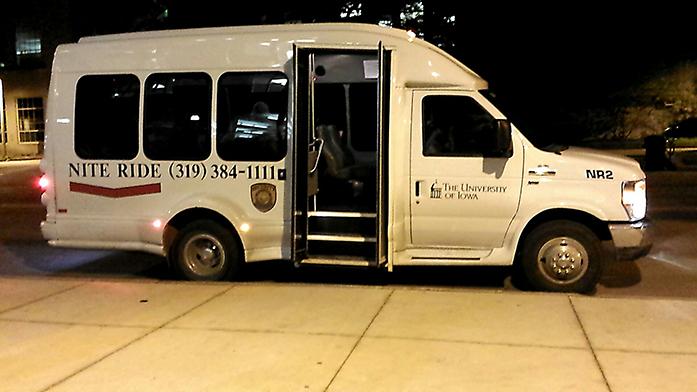Hegde: Safety on transportation services requires more than wearing a seatbelt
The Department of Public Safety provides service and advice to make your trip as safe as possible.
April 11, 2019
A little under two weeks ago, Samantha Josephson, a senior at the University of South Carolina, lost her life after getting into a car that she believed was her Uber ride. Josephson’s death is absolutely devastating and has brought the question of safety of ride services into the minds of millions.
For many college students, booking a transport service is part of the weekly routine. However, just because something is a routine does not mean people should not be on alert. Especially when you need to get somewhere by yourself, it is important to be aware of ways you can make your experience secure, from waiting for the vehicle to getting out and home.
Alton Poole is the community-outreach specialist for the University of Iowa Public Safety Department. As a community-outreach specialist, Poole works to “bridge the gap between the campus and the department.” Poole emphasized that the department’s thoughts were with the loved ones of Josephson. He also provided insight on the many safety precautions students at the university are able to take.
The best known service provided by the UI Public Safety Department is Nite Ride, which runs from 10 p.m. to 5 a.m. throughout the week. The service is free or $1 per person if Express Ride is chosen. While this service is incredibly useful, dozens of requests mean that the service is often quite delayed, sometimes for over an hour. Poole recommended that students try to request a ride 20 to 30 minutes earlier than when they want to leave, taking into account the demand for the service. Poole also recommended waiting inside, because a text message is sent when the Nite Ride arrives to pick people up.
RELATED: Baller: UI Greek Life is pushing Red Watch Band training to teach life-saving skills
Besides Nite Ride, Poole also detailed the numerous other services provided by Public Safety. Rave Guardian is a free mobile app that works as a “virtual safety escort” with features including a safety timer that can be programmed to notify police or a chosen contact if you do not arrive at your planned destination. If in need of an actual escort, student ambassadors — trained through the SHOUT program — are available to assist students in finding a way to get home on Thursday, Friday, and Saturday nights. More information is available on the resources page of the department’s website.
When it comes to safety, the smallest actions — the efforts that seem tedious — can sometimes change the course of a life. Poole had a plethora of actions to consider: waiting for the ride indoors, confirming the license plate and features of the vehicle before getting in, sitting in the back seat, even having your phone ready to dial 911. While these are tiny steps that are easily forgotten in the moment, it has come to a point where these actions are necessary for people to take. Maybe it is awkward to ask the Uber driver what his name is and who he is supposed to be driving; however, five seconds of awkwardness could save a life in the long run.






